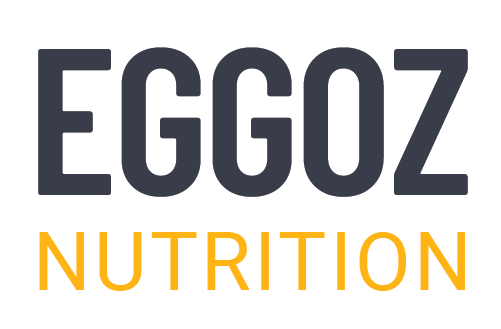Eggs are a protein-packed powerhouse which can significantly add flavor and several essential nutritional benefits that are required for the body to function including eyes. Eyes are one of the five senses that can greatly benefit from this superfood which can be eaten by people of all ages.

In this digital era where digital strain is creating more pressure than ever before due to long working hours, eggs can play a key role to improve eyesight. Let’s delve deep into how eggs are the best superfood proven to improve eye health.
Why Are Eggs Good for Eye Health?
Eggs are widely regarded as one of the most effective superfoods which helps maintain and improve eye health. It is a powerful source of essential nutrients such as Lutein, Zeaxanthin, Vitamin A, and high-quality protein for better eyesight.
Lutein and Zeaxanthin are powerful antioxidants found in the center of your retina (the macula). These antioxidants protect the eyes from harmful blue light and oxidative stress.
Studies show that eating foods rich in Lutein, and Zeaxanthin can help protect your eyes and reduce the risk of vision loss.
They can guard against retinal damage and degeneration over time. Research suggests that it can reduce the risk of age-related macular degeneration (AMD) and cataracts, two leading causes of vision loss, especially in older adults.
Vitamin A, in the eggs, keeps cornea moist and healthy to prevent dry eyes, irritation, and risk of infection. It also helps form Rhodopsin, a retina pigment which helps to see in low light. Zinc also contributes to the retina’s health and night vision.
Additionally, Eggs provide high-quality protein to repair eye tissues, while omega-3 fatty acids in it, reduce inflammation and support eye function.
How Many Eggs Should You Eat Daily?
The recommended intake of eggs varies by age and lifestyle, but research confirms that moderate consumption supports eye health.
-
Children (2-12 years): 1 egg daily
-
Teenagers (13-19 years): Up to 2 eggs daily
-
Adults: 1-2 eggs daily
Studies show that people who ate more than 1 egg per week had a lower risk of developing advanced AMD over 15 years. Most benefits come from the yolk, where the antioxidants and vitamins are concentrated.
While 2-4 eggs per week is standard, this can be adjusted based on health, cholesterol levels, and dietary needs. Those with specific conditions should consult a healthcare professional for your overall balanced diet.
Which Part of the Egg is Best for Eye Health?

Eggs are good for your eyes, but if you’re wondering which part benefits your vision the most, it’s the yolk.
-
Rich in Lutein & Zeaxanthin: Protects against blue light and oxidative stress.
-
Vitamin A & Zinc: Supports retinal function, night vision, and corneal health.
- Choline: A nutrient that helps keep the eye surface stable, supports tear production, and plays a role in retinal development. Deficiency in choline has been linked to conditions like glaucoma, retinal bleeding, and dry eye syndrome.
Conclusion
To conclude, eggs are more than just a protein-rich breakfast which can significantly enhance your eye health. With antioxidants like Lutein and Zeaxanthin, Vitamin A, Zinc, and Choline, eggs help guard against digital strain, age-related macular degeneration, and cataracts.
Hence, including 1-2 eggs daily, especially the yolk, can strengthen your eye health and reduce long-term risks. For best nutritional content, you can choose Eggoz Eggs which are herbal hen feed and go through 11 safety checks to provide you with the signature orange yolk.
FAQs
Are eggs good for eyesight?
Yes. They’re rich in Lutein, Zeaxanthin, and Vitamin A, which protect against vision loss conditions like macular degeneration and retinitis pigmentosa.
Do eggs help with dry eyes?
Yes. Vitamin A and Zinc maintain corneal moisture and tear stability, easing dry eye symptoms.
Are eggs bad for glaucoma?
No. In fact, the lutein and omega-3s in eggs may help reduce intraocular pressure, improving eye health.
Can eggs help with eye bags?
Yes. Egg whites, when applied topically, can tighten the skin and reduce puffiness temporarily.
Can children eat eggs for eye health?
Yes. Eggs support early eye development thanks to their antioxidants and vitamins.


